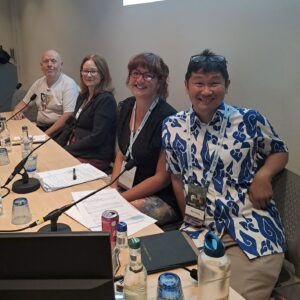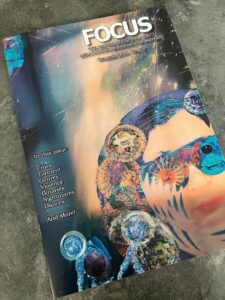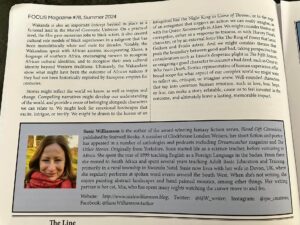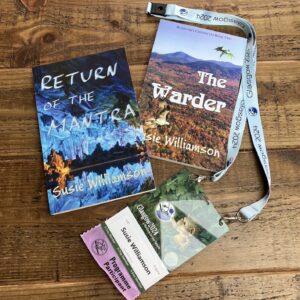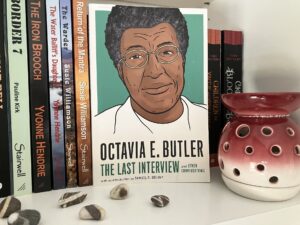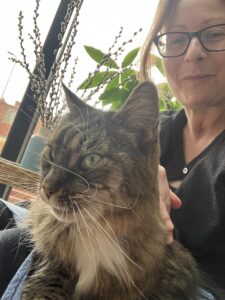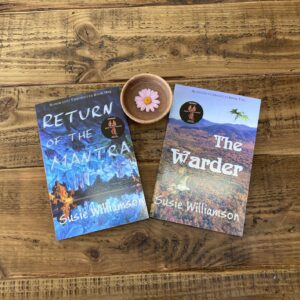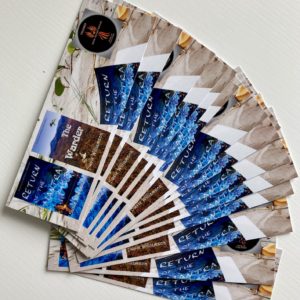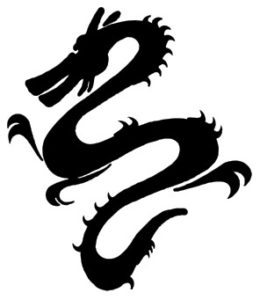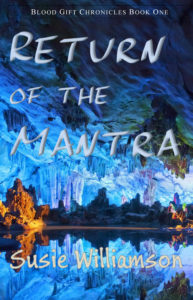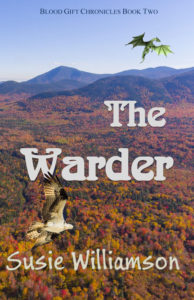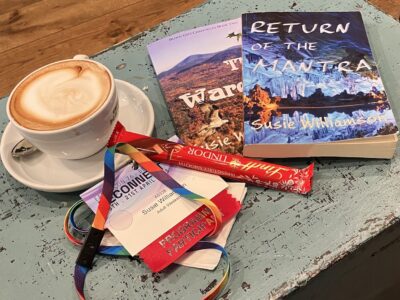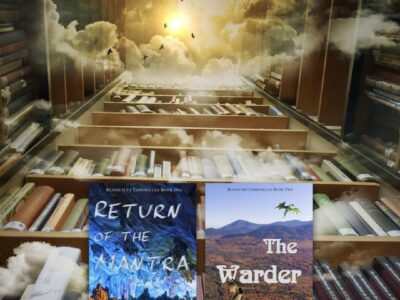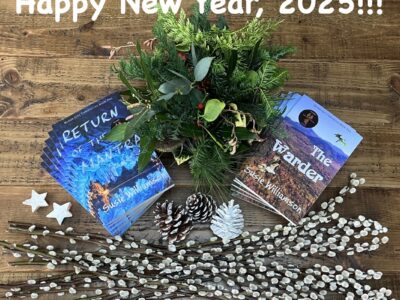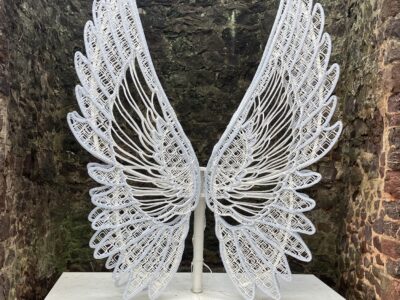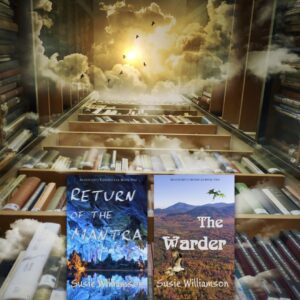
Sunshine in March, while in the novel, character arcs are grappling with some big emotions. It’s a topic I look forward to speaking on at this year’s Eastercon coming soon to Belfast, in particular, the ways in which we can deal with anger and rage in our plot lines. We’re familiar with anger leading to the dark side – Anakin Skywalker in Revenge of the Sith, Harvey Dent in The Dark Knight, and Magneto in the 2000 movie X-Men – anger and rage rooted in fear that leads them down a path of no return. But is this end inevitable, and how else might we explore this powerful emotion?
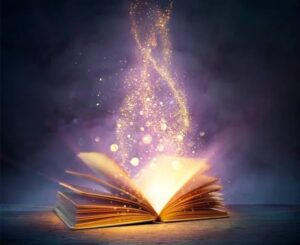
My fantasy series, Blood Gift Chronicles, begins in a patriarchal world with wealth inequalities, environmental destruction, and gender based violence. The stories work to fight back against those power structures to work towards environmental and social justice. There are a number of protagonists and antagonists, with varied responses to their context, and various ways in which power and strength are defined. Among the protagonists, I subvert gender expectation, breaking the notion of traditional gender roles, and incorporate themes of identity, mental health, and being true to oneself. I have a female character who has been subjected to cruelty, and responds by becoming an assassin. I have another female character who has also been subjected to cruelty, and instead looks to community and connection, working together for peace and justice. I have a male character who expresses his rage inwardly, a path of self-destruction whereby he becomes his own antagonist for a while. And I have characters who express rage outwardly, in so far as a physical transformation with far-reaching consequences. The difference is around context, and explores the power of support and breaking social isolation, as well as the need for community, connectivity and shared values. If anger is rooted in fear, it’s interesting to consider what might be able to disrupt the fear to produce a different response. It’s also interesting to see what happens when this doesn’t work, if only as a warning of what can happen if we can’t fix things.
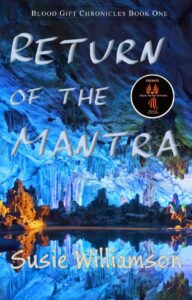
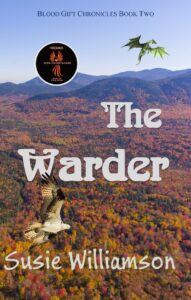
I recently read The Deep by Rivers Solomon, a stirring novella inspired by the real-life African slave trade. In the story there are water dwelling descendants of pregnant African slave women, who were tragically thrown overboard into the ocean. The offspring of these descendants are called Wajinru, and were born breathing water as they did in the womb. Whales were their second mothers, who fed them, bonded with them, and took them to the deepest parts of the ocean where they could be safe. They made their home on the seabed, where the trauma faced by their ancestors is forgotten by everyone except for Yetu, the historian and keeper of memories. She’s forced to dull her own senses to save being overwhelmed by the traumas of history, and it’s only at the Remembrance where she can find peace. Because it’s at this ceremony where the whole gathering holds the memories, affording her some respite. But when the ceremony is over, memories are returned to her, since those memories are so intense and tragic, only the historian is able to shoulder the burden. But the burden is wearing her down, and so at the next Remembrance, Yetu runs away, abandoning her kin to save herself.
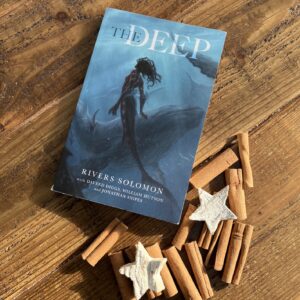
This character has got real ragged emotions, filled with rage, pain, guilt and frustration. The memories were killing her, yet there is also no peace for her having left her family and community behind. Themes of identity and belonging are explored, as well as personal and communal responsibility in tackling the big stuff.
Which leads me back to the world in my own work-in-progress, and a centuries long rage with far reaching consequences and seismic hope.
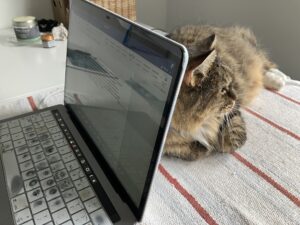
Meanwhile, on a different note, in the real world, a visit to the Valley of Rocks for some heady North Devon coastal heights.
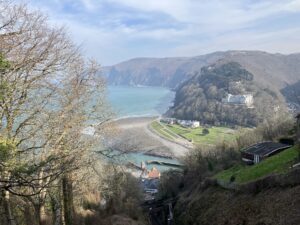
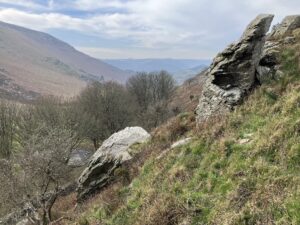
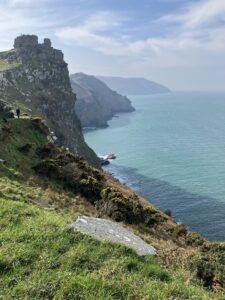
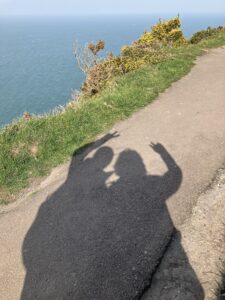
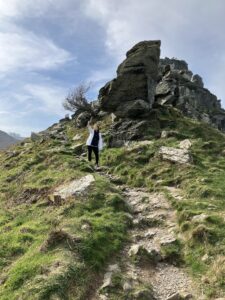
The mountain goats were hiding though their reputation proceeds them, rebel goats known for head-butting sheep right off the slopes, and dividing the town with their rebel antics… I did meet a Pyrenees mountain dog, a gentle giant whose presence was reassuring at a place of dizzying heights. The door was intriguing and should come with the warning sticker, ‘Do Not Enter,’ because to do so involves falling off a cliff. It is a place of imagination and stories, abound with pixie folklore, a place of scattered rocks randomly strewn as though tossed by giant hands. And it was a wonderful breath of fresh air…
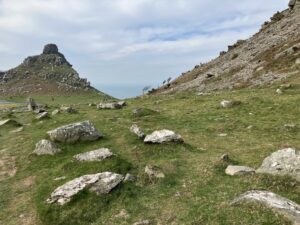
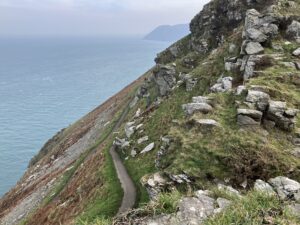


xxx



















